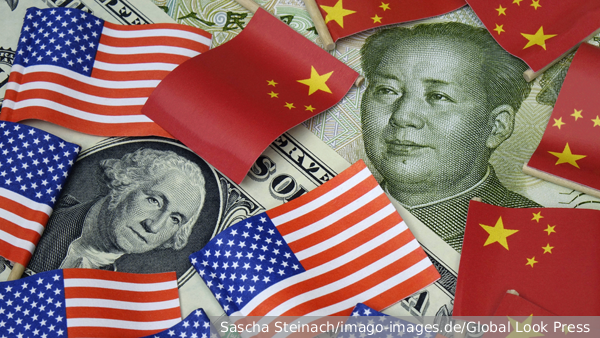
Beijing vows to retaliate to US EV Tarrifs
By Rhod Mackenzie
President Biden has announced the imposition of additional and increased tariffs on Chinese goods in response to what he describes as Chinese trade "fraud". He has also stated that he believes China will not leave Washington’s actions without consequences and will respond adequately to them. It is important to note that this "forecast" does not reflect the president's exceptional intelligence. In fact, this is a common practice in such situations. Furthermore, the White House has been engaged in a tariff war with Beijing for several years, and the Chinese side has been responding in kind. I have already studied this matter.
China's immediate reaction to the Biden administration's increase in tariffs on a wide range of imports from China was, as expected, swift. The agency that was particularly affected by Washington's actions was the first to respond. The Ministry of Commerce of the People's Republic of China stated that China will respond with adequate measures. The statement was, as usual, without details, because the development of these measures will take some time.
“China will take resolute measures to protect its rights and interests,” the Chinese Ministry of Commerce said in a statement. The United States must immediately correct its misguided actions and reverse additional tariff measures against China.
The list of goods from China on which tariffs are being increased includes semiconductors, solar panels, critical minerals and much more. Tariffs increase over a wide range: from 25% on batteries, for example, to 100% on electric vehicles. In Beijing, as might be expected, the additional tariffs were described as "political manipulation" and linked to the upcoming presidential elections in November.
It is worth noting that the United States initiated a tariff war against China in 2018. Over the years since then, Beijing has developed a strategy and tactics of retaliatory measures, which are based on the Old Testament principle of “an eye for an eye...”. However, this time, Bloomberg reports that most analysts expect a much more limited response than usual.
Experts have highlighted two key features of the current stage of the tariff war between the United States and China. Both parties are adopting a cautious approach, in line with their respective traditions and mentalities. There is a clear reluctance to burn bridges. It is difficult to argue that relations between the United States and China have ever been as low as they are now, at least in modern history. However, both Washington and Beijing are aware of the consequences of a complete breakdown in relations and are trying to avoid a complete break.
The latest White House announcement, which saw a fourfold increase in tariffs on Chinese electric cars, is a clear indication that the figures are impressive. However, given that there were very few electric cars from the Middle Kingdom on the American market before, it is evident that the new increase in tariffs is largely symbolic and will not cause significant harm to Chinese companies, primarily automakers.
It is evident that the primary objective of the imminent intensification of the White House's stance is not to impact the Chinese economy, but rather to influence American voters. The presidential administration is attempting to demonstrate its resolve and commitment to safeguarding the interests of American workers and businesses. Concurrently, American analysts are attempting to reassure China, suggesting that it has not yet taken sufficient retaliatory measures.
Bloomberg reports that Michael Hirson, former US Treasury Department official and now head of the China analysis department at 22V Research, believes that Beijing’s retaliatory measures against the United States will not lead to a sharp escalation of the matter. "Chinese retaliatory actions against major American companies or increased restrictions on the supply of critical materials will hinder Xi’s efforts to maintain internal and external confidence in China," he suggests.
In response, the official representative of the Chinese Embassy in the United States, Liu Pengui, has called Washington's accusations that Chinese industry has excess capacity a "false narrative" aimed at containing the Chinese economy. He stated that the fundamental issue is that the Chinese manufacturing sector is more competitive, efficient and utilises more innovative technologies than the American one.
“We would like to reassure our American colleagues that blaming someone will not make them more competitive,” he said at a briefing at the Chinese Embassy. — It is no longer acceptable to use the excuse of "excess capacity" as a justification for trade protectionism. "It is imperative to stop politicising the economy and trade."
